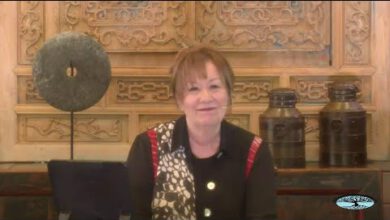Politician Armed with The Teachings of Abraham
Politician Armed with The Teachings of Abraham
Lately, I’ve been reflecting on a quote that I cut out and placed above my desk at work. It’s by Antoine de Saint-Exupéry, and it reads: “As for the future, your task is not to foresee it, but to enable it.” This quote resonates with a dilemma I’ve been contemplating—balancing the idea of predicting the future, which aligns with some of the Abrahamic teachings, and enabling the future, which revolves around taking action.
Many people in my generation believed it was their duty to actively shape the future—to create a better planet, a better nation. Politics, as a tool for change, often served as the vehicle to achieve these goals. However, Abrahamic teachings have criticized politics extensively, and while we never condemn individuals, I can’t help but agree with some of these criticisms. Pushing against things is often part of the political process, and as someone who spent years in politics, I understand the reality of this.
Some years ago, I ran for public office, for Congress, feeling it was my responsibility and my mission to contribute to creating a better world. However, as Abraham teaches, pushing against things is ultimately a futile pursuit. Despite this, I’ve recently felt a pull to re-enter the world of politics, and I find myself wondering how I can do so without losing myself in the process. More importantly, how can I align with Abraham’s teachings and the universal laws when my goal is to help shape human laws?
It might surprise you to hear us say that we completely agree with everything you’ve shared, especially the quote that inspired you. Let us provide a brief explanation of this process and show you how it all fits together.
First, we acknowledge that the process of deliberate creation is a three-step process. The first step is exploring the contrast. The political world is filled with contrasts, and this exploration is a key part of the conversation and the solution. You can’t find a solution without understanding the problem, and there’s no expansion without recognizing what you want beyond what you have. This step is essential, though many people get stuck here.
The second step is that the answer comes. When you ask a question, the universe responds. This response comes from the Source, not from humans. The third step is for the questioner to become the “allower” of the answer or solution. In other words, you must align with what life has led you to desire. Without this vibrational alignment, you won’t be able to enable your desired outcome.
The quote you shared may very well be referring to this idea of enabling—allowing yourself to be in a position to receive the solutions life has for you. In politics, while there’s often a lot of resistance, imagine engaging in discussions with reasonable people (and we’re not excluding Congress from this group). These individuals are often well-meaning, well-educated, and deeply invested in the well-being of others. They may be stuck in the first step of the process—focused on scarcity and competition for resources.
Imagine the collective questions that arise when people from diverse communities and backgrounds come together to tackle complex issues. The collective energy and questions they generate can lead to powerful solutions in the right conditions. You’re right, and we agree that political involvement can be complex, but by understanding these steps, you can move forward with clarity and purpose.
This version is restructured for SEO clarity and readability, emphasizing key concepts, such as Abrahamic teachings, politics, deliberate creation, and enabling the future.
